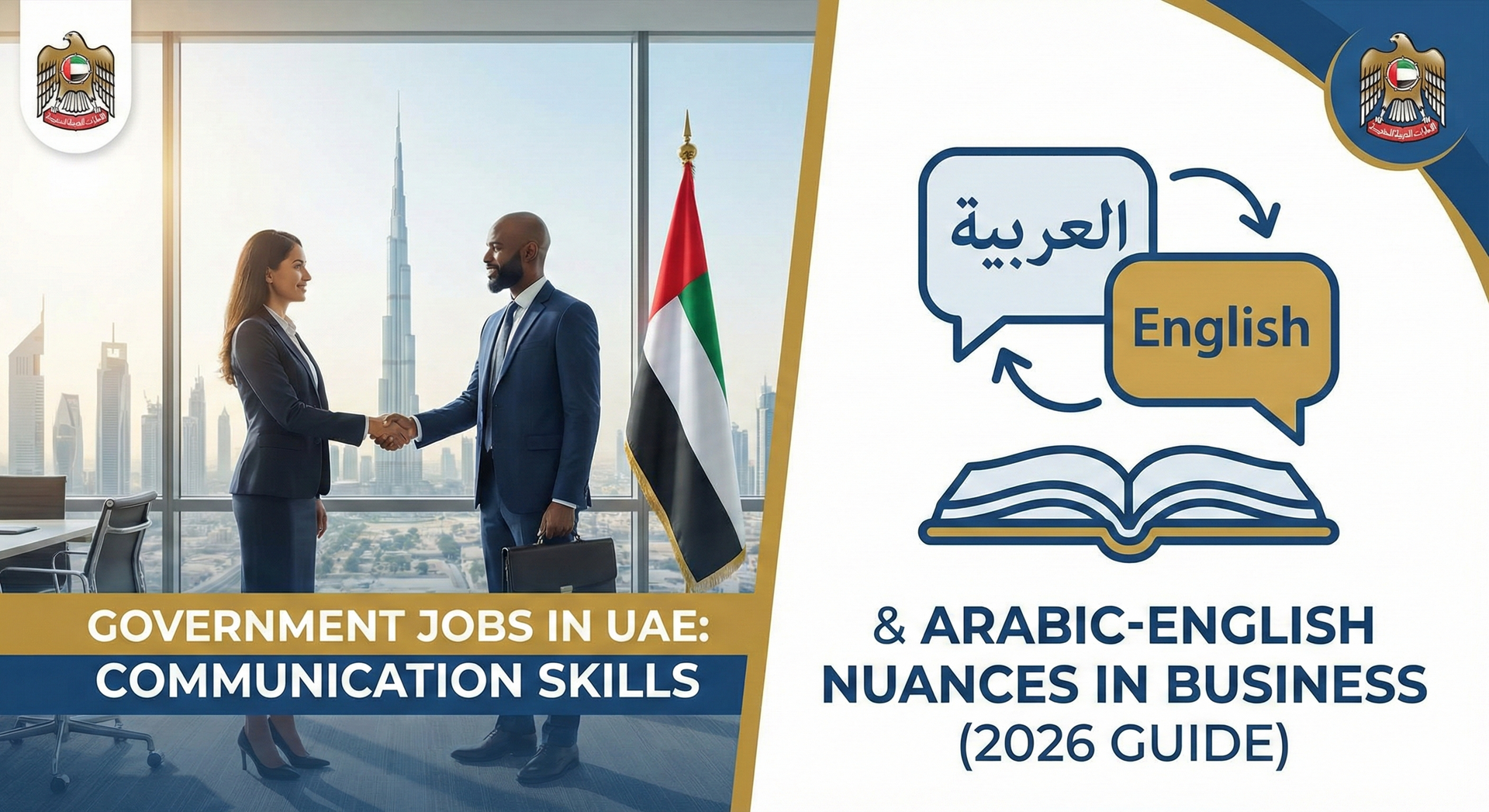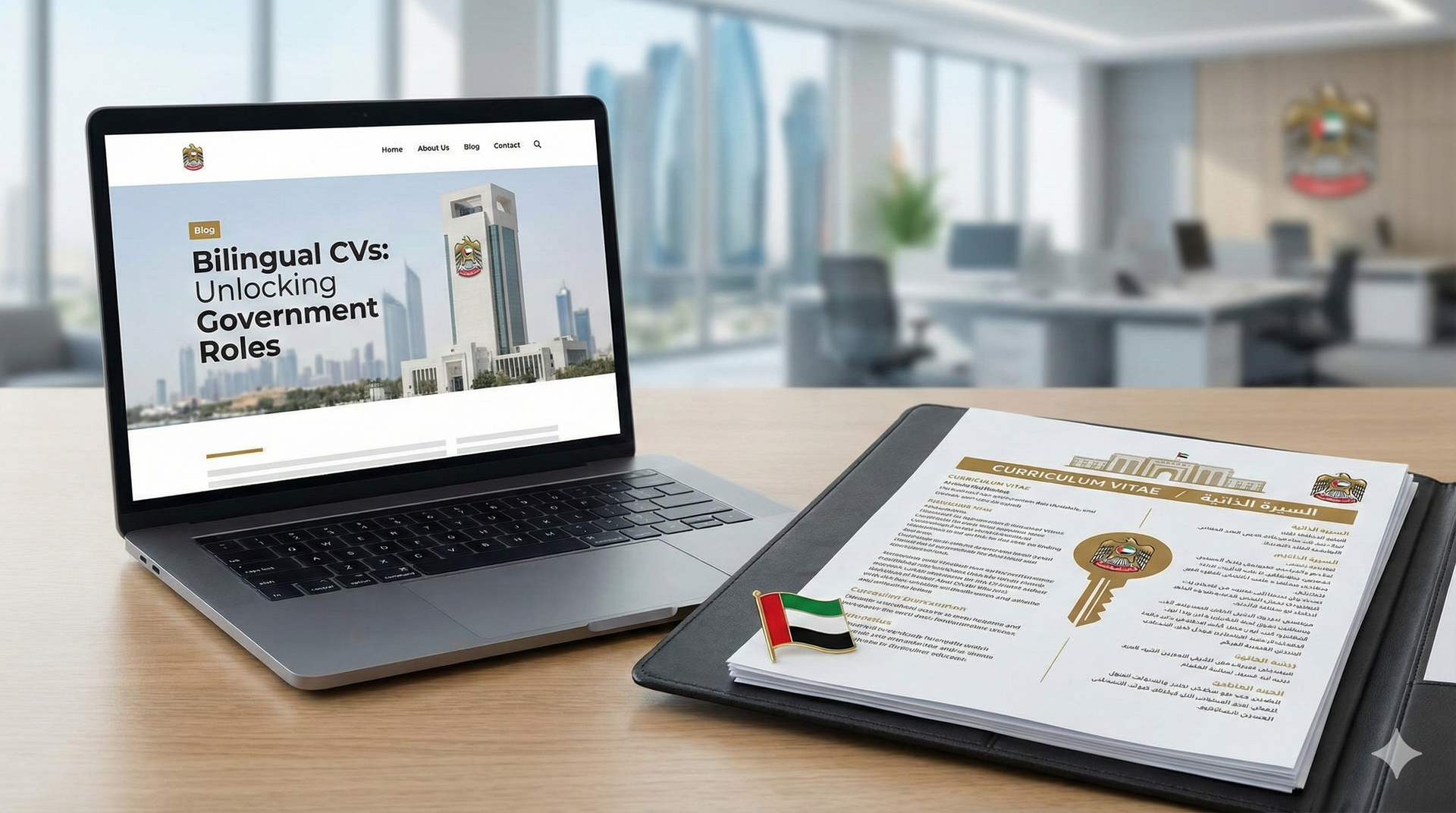The Rise of GCC Nationals in Executive Positions

Across the Gulf, a new generation of national leaders is shaping the future of business, governance, and innovation. From Emirati executives in federal ministries to Saudi leaders driving Vision 2030 transformation projects, the region is witnessing an unprecedented rise in GCC nationals assuming senior leadership positions across both public and private sectors.
This transformation reflects a strategic regional goal — empowering nationals to lead key industries, diversify economies, and manage multi-billion-dirham projects with global impact. Supported by government reforms, leadership development programs, and academic partnerships, GCC citizens are becoming the driving force of the region’s next economic wave.
The Vision Framework Behind the Rise
Every GCC nation has anchored leadership development into its national vision:
- UAE Vision 2031 aims to create a “next-generation government” built on innovation, digital transformation, and Emirati-led leadership.
- Saudi Vision 2030 emphasizes empowering Saudi nationals in senior corporate and public roles, focusing on strategy, sustainability, and diversification.
- Qatar National Vision 2030 focuses on developing human capital and promoting Qataris into executive positions in finance, energy, and research sectors.
- Oman Vision 2040 prioritizes localization (Omanisation) through training programs and private-public partnerships.
These reforms are reshaping recruitment strategies across the Gulf. According to Gulf Business 2025, over 60% of newly appointed directors in UAE semi-government entities are GCC nationals — a sign that localization has evolved beyond quotas into a genuine leadership movement.
Government Support and Executive Training Programs
To sustain this growth, GCC countries have launched world-class programs that equip nationals with executive-level skills in leadership, governance, and strategic management.
Key National Initiatives Driving Leadership Development
- UAE’s Nafis Program: Enhances Emirati participation in the private and semi-government sectors by funding executive training and mentorship.
- Saudi Human Capability Development Program: Aims to prepare Saudis for global competitiveness, emphasizing leadership and digital literacy.
- Qatar Leadership Centre (QLC): Develops high-potential nationals through experiential training with Harvard and INSEAD.
- Oman’s National Leadership Development Program: Focuses on innovation management and performance-driven leadership in public service.
Through these initiatives, the Gulf is producing leaders capable of managing global investments, sustainability agendas, and AI-driven government strategies.
Sectors Where GCC Nationals Are Taking the Lead
While government entities remain a strong career avenue, GCC professionals are increasingly leading private and mixed-sector organizations.
Prominent sectors witnessing national leadership include:
- Energy and Renewables: Emirati and Saudi executives now head major sustainability and clean-energy projects under ADNOC, Aramco, and Masdar.
- Banking and Finance: Bahraini and Emirati nationals hold CEO and CFO positions in regional banks and sovereign wealth funds.
- Technology and AI: Qatar and UAE nationals lead digital innovation initiatives under ministries and private AI accelerators.
- Education and Research: Omani and Saudi academics are transforming higher education through innovation-focused leadership.
- Tourism and Aviation: National executives are now driving customer experience and strategic expansion for Emirates, Saudia, and Qatar Airways.
This diverse leadership presence reflects the Gulf’s commitment to developing homegrown executives who can compete globally while maintaining local insight.
Leadership Competencies Defining GCC Executives
The modern GCC executive is a blend of visionary thinking, cultural intelligence, and digital awareness. Organizations across the region now seek leaders who can align business growth with national transformation goals.
Core leadership skills defining GCC executives include:
- Strategic Vision: Setting long-term objectives aligned with government goals.
- Innovation and Technology Leadership: Adopting AI, data analytics, and automation to optimize efficiency.
- Cultural Diplomacy: Balancing traditional values with global best practices.
- Cross-Sector Collaboration: Managing partnerships between ministries, private companies, and international institutions.
- Sustainability-Driven Decision-Making: Integrating ESG (Environmental, Social, Governance) principles into business models.
These skills position GCC leaders as both regional change agents and international partners in progress.
Women in GCC Leadership: A New Era of Inclusion
The empowerment of female GCC executives marks one of the most transformative shifts in the region’s leadership landscape.
In the UAE, women now hold over 30% of government leadership roles, including ministers, CEOs, and directors of strategic initiatives. Saudi Arabia has seen similar growth, with women appointed to leadership positions in banking, logistics, and technology.
According to The National News, female leaders are driving policy innovation, economic inclusion, and sustainability programs, reshaping perceptions of leadership across the Arab world. This progress aligns with the region’s broader agenda of inclusivity and diversity in governance.
Challenges and the Path Forward
Despite remarkable progress, GCC nationals in executive roles still face challenges such as succession planning, skills gaps in emerging technologies, and limited international exposure in specialized sectors.
However, governments and corporations are addressing these issues through:
- Global executive partnerships with institutions like INSEAD, Oxford, and Harvard.
- Digital upskilling programs focused on AI, cybersecurity, and data governance.
- Cross-border leadership exchanges across the GCC and Europe.
The regional goal is clear — to create a leadership ecosystem where nationals lead, innovate, and mentor within globally integrated organizations.
How Professionals Can Prepare for Leadership Roles
Whether Emirati, Saudi, Qatari, or Omani, senior professionals can accelerate their growth through proactive career branding and skill positioning.
1. Build a Strategic Executive CV
Your CV should reflect
measurable leadership impact, board-level collaboration, and alignment with national strategies.
→ Optimize your leadership profile with
Professional CV Writing services tailored for GCC executives.
2. Strengthen Your Digital Brand on LinkedIn
A well-optimized LinkedIn profile demonstrates credibility and strategic influence. Share insights on governance, innovation, and sustainability.
→ Explore
LinkedIn Optimization Services to elevate your professional presence.
3. Prepare for Executive Interviews
Leadership interviews often focus on transformation strategy and stakeholder management.
→ Practice through
Interview Coaching for Senior Professionals to refine your narrative and confidence.
4. Seek Strategic Advisory and Mentorship
For professionals aiming at C-suite or director-level positions, personalized career consulting ensures alignment with GCC market expectations.
→ Visit
Expert Career Support for GCC Leaders for tailored executive guidance.
Regional Outlook: The GCC’s Leadership Future
As the Gulf transitions into a knowledge-based economy, GCC nationals are not just participants—they are the architects of transformation. From boardrooms to government councils, local leaders are shaping sustainability, digital innovation, and global competitiveness agendas.
The next decade will witness deeper integration between public and private leadership pipelines, more inclusive representation, and stronger regional collaboration. With strategic preparation and branding, GCC professionals can seize opportunities that once seemed limited to expatriates.
The rise of national leadership is no longer a policy — it is the new identity of Gulf success.
Conclusion
The ascent of GCC nationals into executive roles represents a powerful shift toward regional self-reliance and global credibility. As leadership programs, education systems, and policies align under Vision 2030 and Vision 2031, national professionals now have every opportunity to lead change from within.
For executives ready to strengthen their influence, Labeeb Writing & Designs provides tailored support in executive CVs, LinkedIn optimization, and career branding strategies that reflect the leadership standards of the GCC.
👉 Visit www.labeeb.ae to prepare your leadership profile for 2025’s evolving executive landscape.
FAQ
1. Which GCC countries have the most national executives in leadership roles?
The UAE and Saudi Arabia currently lead in the number of national executives in both government and private sectors, followed closely by Qatar and Oman.
2. Are GCC nationals replacing expatriates in executive positions?
Not entirely. Instead, the trend is toward
collaborative leadership models where nationals lead while expatriates serve as advisors or technical experts.
3. What industries are creating the most opportunities for GCC leaders?
Energy, technology, banking, education, sustainability, and AI-driven innovation are the top-growing sectors.
4. How can a GCC professional prepare for executive-level hiring?
By building a results-oriented CV, strengthening their online brand, and gaining leadership certifications or international exposure.
Arabic Summary (ملخص بالعربية)
يشهد الخليج العربي في عام 2025 صعودًا لافتًا للكوادر الوطنية في المناصب القيادية، مدعومًا برؤى وطنية مثل رؤية الإمارات 2031 ورؤية السعودية 2030. يتولى المواطنون من الإمارات والسعودية وقطر وعُمان مناصب عليا في قطاعات الطاقة، والتقنية، والتعليم، والمالية، مدعومين ببرامج تدريبية متقدمة مثل نافس ومركز قطر للقيادة. تسعى هذه الجهود إلى بناء جيل من القادة القادرين على تحقيق التنمية المستدامة وتمثيل دولهم في الساحة العالمية. ومع خدمات Labeeb Writing & Designs، يمكن للقادة الطموحين تعزيز علامتهم المهنية والاستعداد لتقلد المناصب التنفيذية في أسواق الخليج المتنامية.








